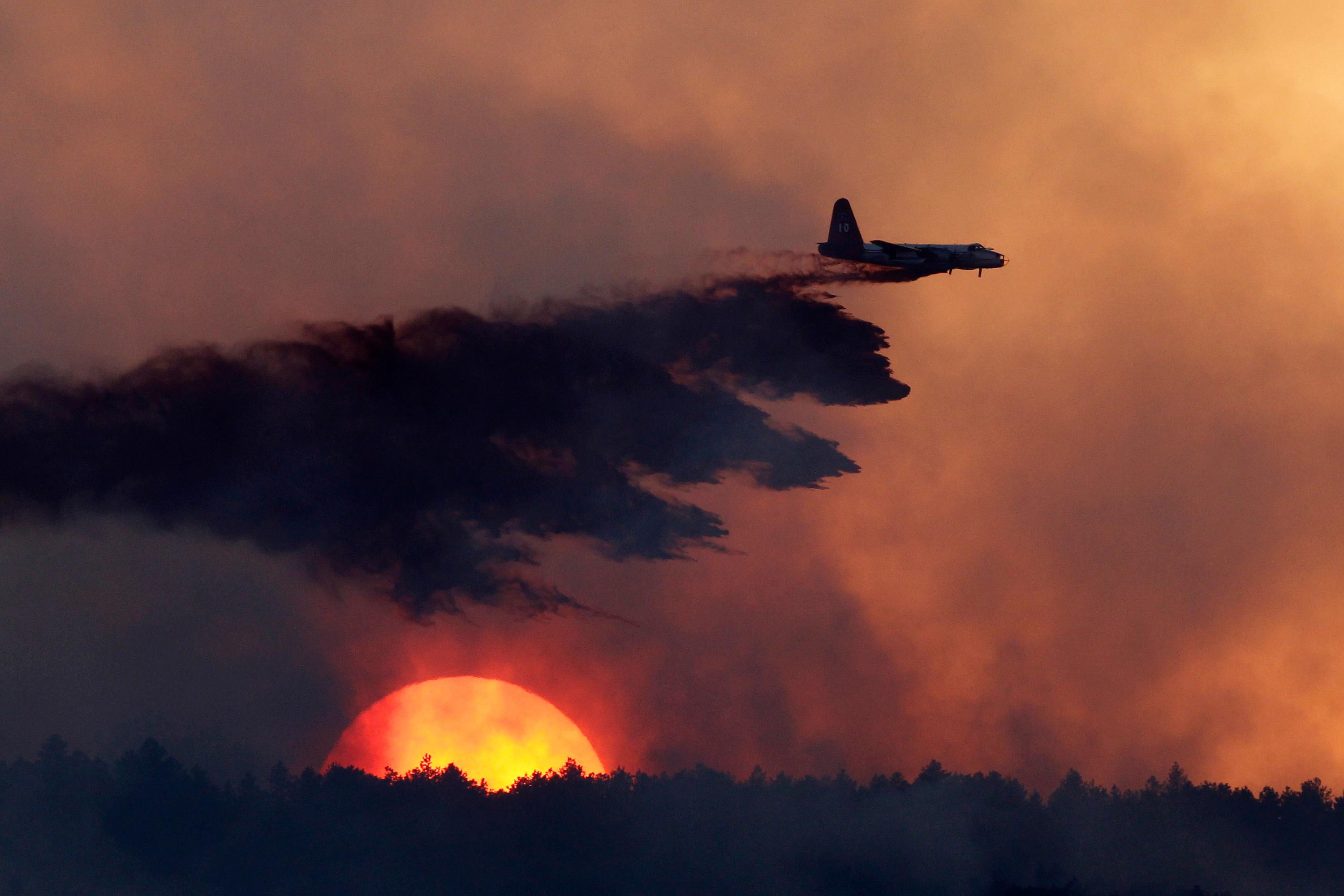

A spending bill approved by the House includes a bipartisan plan to create a wildfire disaster fund to help combat increasingly severe wildfires that have devastated the West in recent years.
The bill sets aside more than $20 billion over 10 years to allow the Forest Service and other federal agencies end a practice of raiding non-fire-related accounts to pay for wildfire costs, which approached $3 billion last year.
The House approved the measure Thursday, with Senate action expected soon after as Congress faces a Friday night deadline to avoid a partial government shutdown.
Western lawmakers have long complained that the current funding mechanism — tied to a 10-year average for wildfires — makes budgeting difficult, even as fires burn longer and hotter each year.
The new plan sets aside $2 billion per year — outside the regular budget — so officials don't have to tap money meant for prevention programs to fight wildfires.
"Common sense has finally prevailed when it comes to how the Forest Service pays to fight record-breaking forest fires that devastate homes and communities in Oregon and the West," said Sen. Ron Wyden, D-Ore., who helped broker the deal with Sens. Maria Cantwell, D-Wash., and Mike Crapo, R-Idaho. GOP Reps. Mike Simpson of Idaho and Cathy McMorris Rodgers of Washington also played key roles, along with other lawmakers from both parties.
The Western lawmakers have been fighting for years to end "fire borrowing," a practice they say devastates rational budgeting for the Forest Service and other agencies.
"This long-overdue, bipartisan solution to the madness of 'fire borrowing' will at last treat these infernos like the natural disasters they are, with the benefit that millions of dollars will now be liberated each year for essential wildfire prevention," Wyden said in a statement.
The wildfire deal "puts an end to fire-borrowing and is a start to giving the Forest Service the predictable resources they need to reduce hazardous fuels" such as small trees and underbrush that exacerbate wildfires, Cantwell said.
"This funding boost will allow the Forest Service to prioritize work in areas closest to communities, in order to save lives and reduce the risk of property damage, while still protecting essential public lands and existing environmental laws," said Cantwell, the top Democrat on the Senate Energy and Natural Resources Committee.
The measure establishes a contingency account through 2027, with annual deposits starting at $2.1 billion and increasing to $2.9 billion. Money from the account would only be used after funds from usual firefighting accounts are exhausted.
Rep. Rob Bishop, R-Utah, slammed the wildfire measure as a missed opportunity. The bill "slightly improves the Forest Service's flexibility," but it "does very little to restore the health of our nation's forests," said Bishop, chairman of the House Natural Resources Committee.
"Democrats, especially in the Senate, stood in the way of forest reform that could have prevented future catastrophic wildfires," said Bishop, who supports a House-passed bill that calls for faster approval of logging projects to reduce the risk of fire in national forests.
"We are not looking forward to the Schumer fires of 2018," Bishop said, referring to Senate Democratic Leader Chuck Schumer of New York, who played a key role in the spending bill.
Wildfires have burned across dried-out Western forests and grassland in recent years, causing billions of dollars in damage in California, Oregon and other states. The Forest Service and Interior Department spent more than $2.7 billion last year fighting fires — the most expensive wildfire season on record.
The budget deal includes $100 million for fire prevention projects and recreation programs and enables utilities to work with the Forest Service to prevent trees from touching power lines and starting wildfires.
Simpson, a senior member of the House appropriations panel, called the wildfire fund one of his most significant accomplishments in nearly two decades in Congress.
"It is long past due that wildfires in the West receive equal treatment with other natural disasters, and this bill delivers the necessary budget changes to stop the dangerous practice of fire borrowing that has led to catastrophic wildfires in Idaho and throughout the West," he said.









